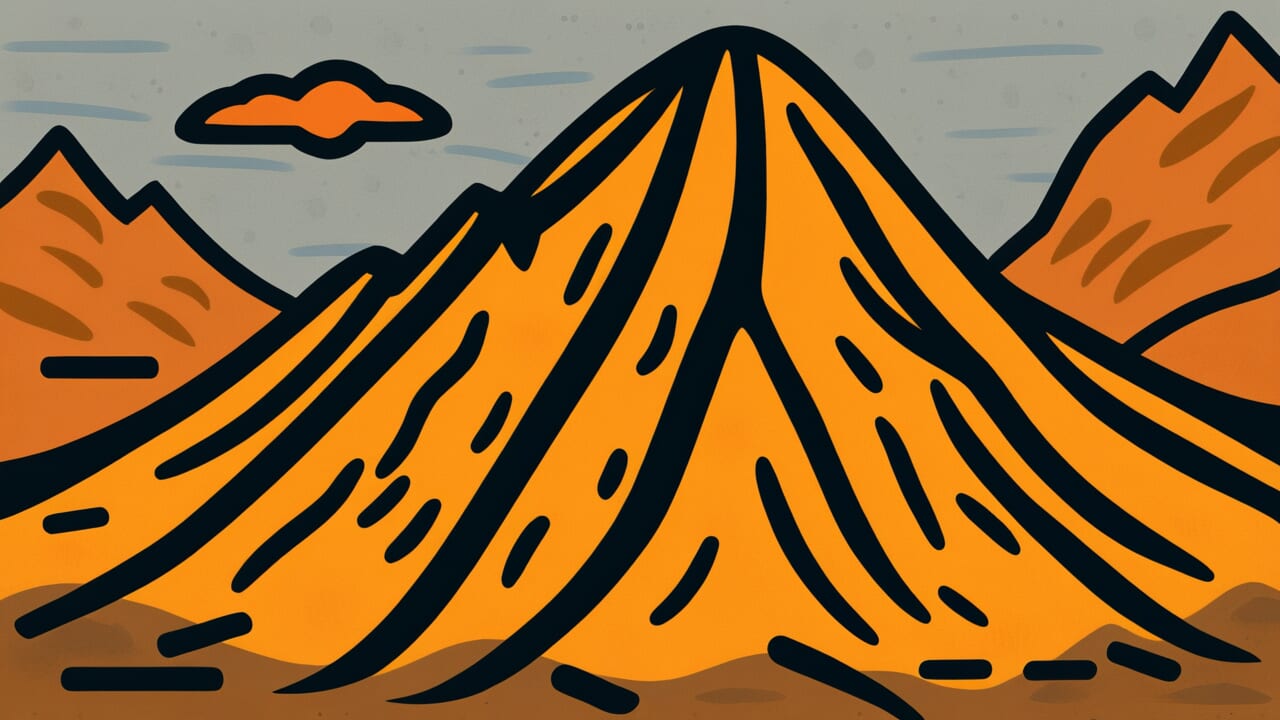How to Read “A mountain that has burned once will not burn twice”
いちどやけたやまはにどはやけぬ
Meaning of “A mountain that has burned once will not burn twice”
This proverb means that someone who has experienced a major disaster or failure won’t repeat the same mistake. They know the pain, so they learn from it.
Just as a burned mountain has nothing left to burn and won’t catch fire again right away, a person who has suffered learns to avoid making the same error.
People use this saying to encourage someone who has recovered from failure. It’s also used to praise someone who acts carefully based on past experience.
You might also use it to show trust in someone who has learned from a painful lesson. It suggests they’ll be fine this time because they’ve been through it before.
This expression compares human learning to a natural phenomenon. It views personal growth positively.
The message is that failure isn’t shameful. Instead, learning from it makes you stronger. This is a forward-looking perspective.
Even today, people understand this proverb as teaching the importance of not fearing failure. It emphasizes the value of challenging yourself and learning from experience.
Origin and Etymology
There are no clear records about when or where this proverb originated. However, its structure suggests it came from observing wildfires in nature.
When a wildfire occurs, all the grass and trees burn away. The ground becomes scorched earth.
For a while after, there’s nothing left to burn. A large fire can’t happen in the same place again soon.
Our ancestors observed this natural principle. They likely turned it into a life lesson through this saying.
Japan has always been a country surrounded by mountains and forests. Wildfires were a familiar disaster to the people.
It takes many years for a burned mountain to regain its greenery. During that time, a second fire is unlikely in the same spot.
This practical knowledge was shared among communities. People understood this pattern from experience.
They then applied this natural phenomenon to human behavior. Someone who has experienced major failure or disaster knows the pain.
Because of that knowledge, they won’t repeat the same mistake. This wisdom was elevated into a teaching.
This proverb shows a characteristic feature of Japanese sayings. They draw life wisdom from observing nature.
Usage Examples
- あの会社は一度倒産の危機を経験しているから、今は財務管理が徹底していて一度焼けた山は二度は焼けぬだね
- 彼は若い頃の失敗で懲りているから、一度焼けた山は二度は焼けぬで同じミスはしないだろう
Universal Wisdom
This proverb has been passed down because it captures a fundamental truth. Humans are creatures who learn from experience.
Pain is the most powerful teacher. A child who gets burned learns to fear fire. We learn most deeply from what we experience firsthand.
What’s interesting is that this proverb doesn’t condemn failure. Instead, it sees one failure as preparation for future success.
Just as a scorched mountain slowly regains its greenery, humans grow internally after failure. They become stronger through the process.
Why don’t people repeat the same mistakes? Because the memory of pain works as an instinctive defense mechanism.
Someone who has experienced major disaster carries a strong feeling in their heart. They never want to taste that suffering again.
This emotion generates caution and wisdom. It becomes a protective force in their life.
Our ancestors understood that failure and success aren’t opposites. They’re part of a continuous growth process.
Because the mountain has burned once, the new life that sprouts next takes root more strongly. This cycle is true learning in life.
This is why the proverb resonates across generations. It speaks to something universal in human experience.
When AI Hears This
When you observe the burned remains after a wildfire, you see charred wood and ash. From a thermodynamics perspective, this reveals something remarkable.
Before burning, wood exists in a “low entropy state.” Its cellulose molecules are arranged in an orderly pattern. This represents organization and structure.
But combustion changes everything. The wood becomes carbon dioxide and water vapor that scatter into the atmosphere. Heat energy also disperses into the surroundings.
This is a shift to a “high entropy state.” It’s a move from order to disorder, from organized to scattered.
The crucial point is that this change has directionality. Like ink dropped in water that naturally spreads out, the universe only flows from order to disorder.
The scattered carbon dioxide molecules will never naturally gather back into the shape of wood. The probability of this happening is essentially zero.
If you calculate it, the odds are one in ten to the power of dozens. It’s an astronomically low probability.
What makes this proverb brilliant is how it captures the one-way nature of combustion. The phrase “will not burn twice” expresses this perfectly.
Technically, “there’s no material left to burn.” But this simultaneously speaks to a fundamental law of the universe: time cannot be reversed.
People understood this profound truth about irreversibility without knowing scientific theory. They grasped it simply by observing natural phenomena.
Lessons for Today
This proverb teaches us not to fear failure, but to value learning from it. Modern society often condemns failure too harshly.
Sometimes we feel that one mistake is fatal. But what truly matters isn’t avoiding all failure. It’s not repeating the same failure.
If you’ve experienced major setbacks in the past, they weren’t meaningless. That experience is a valuable asset guiding you to the next stage.
Because you know the pain, you can now prepare carefully. You can assess risks better and make wiser decisions.
Start by reflecting on past failures. Analyze calmly what went wrong and why it happened.
Then create concrete strategies to avoid falling into the same situation. This applies to work, relationships, and every area of life.
The important thing is not to feel ashamed of failure. Instead, take pride in the wisdom you gained from it.
Because the mountain has burned once, the greenery that sprouts next is more vigorous. Your experiences have definitely made you stronger.



Comments